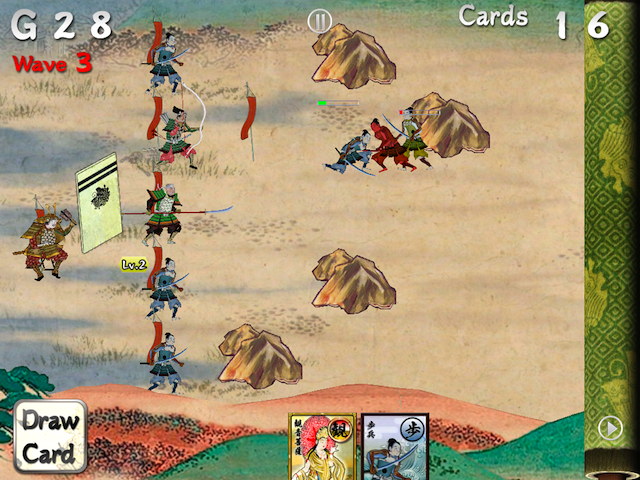I’ve spent a lot of time in 2011 playing games, but not a lot of time writing about them. Instead of my usual end-of-year game recommendations, I’d like to tell some stories or share some thoughts about the ones that meant the most to me this year. I’ll be posting one a day until Christmas. See all Games of 2011 posts.

It goes without saying that the gaming world has an prominent uncreative streak. The last thirty years have been full of cheap knock-offs and riffs on wildly successful games.
The recent rise of mobile gaming has been particularly bad for this. Any game mechanic with even mild originality will inevitably be copied into oblivion. Look at what happened to Fruit Ninja, Tiny Wings, or Angry Birds.
Knock offs that intend to deceive the consumer is bad business. Derivatives that build on top of existing ideals can end up being brilliant.
Strangely, the success of Popcap’s Plants vs. Zombies in 2009 did not give rise to a wide array of grid-based base defense titles. So when Sega released SAMURAI BLOODSHOW for iOS earlier this year, there was some shouting that it seemed familiar. But it is far more than just a knock off – in fact, it’s easily a deeper title than PvZ was.
Taking place in feudal Japan and featuring lots of Edo-period style art, Samurai Bloodshow invites players to fend off waves of attackers from crossing their back line. The grid system and need to pair up units in rows to effectively defend against different units will be old hat to PvZ pros.
Everywhere that felt like PvZ lost a step, Samurai Bloodshow goes the right way. Be it build out strategy (card collection and deck building force you to adapt), unit management (life bars and being able to stack units to increase their level), or resource management (finite deck size prevents infinite builds), Samurai Bloodshow feels more mature strategy game across the board.
Bloodshow also attacks one of my personal weak spots by awarding measured specific benefits as you work through the stages. Every defeated level either sends another card into your library or increases your deck size. This slow trickle keeps you wanting to progress, as you’re only as good as your deck is.
Many gamers find derivative games to be anathema, as though every game of merit has to be completely original and devoid of connections to past titles. This is silly, of course. Good ideas can — and should — be taken and refined into greater ones. Samurai Bloodshow makes a strong case for the power of refining an existing concept into a better one.
SAMURAI BLOODSHOW is available for iOS as a Universal application.